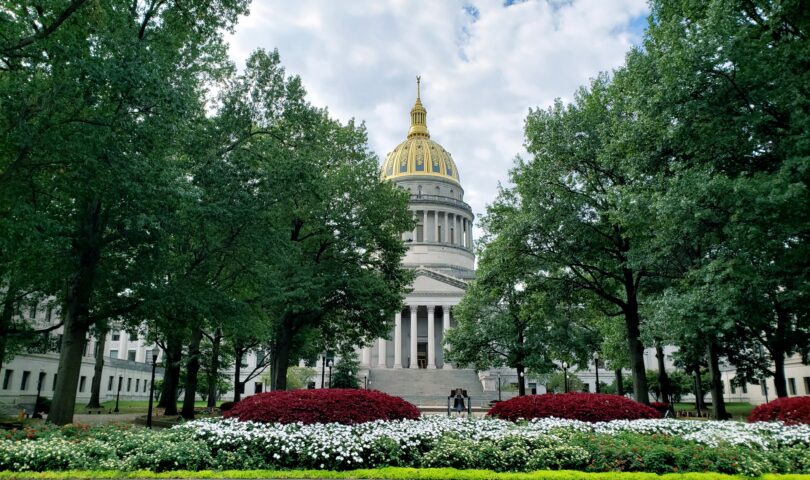MORGANTOWN – A coalition of mineral and property owners and environmental advocates is asking Gov. Jim Justice to add a bill providing funding for more oil and gas well inspectors to the special session call planned for the last week of April.
The Department of Environmental Protection’s Office of Oil and Gas has only nine inspectors for 75,000 wells, said West Virginia Surface Owners Rights Organization co-founder David McMahon during a Tuesday Zoom press conference. That’s just one inspector for every 8,000 wells.
He once again sited a Princeton and McGill universities study of 79 active conventional wells in 13 West Virginia counties that showed 53% were leaking methane. Those leaks deprive the royalty owners and the producers of revenue, he said, and put more greenhouse gas into the air.
OOG had 18 inspectors at the time of that study, McMahon said, and that wasn’t enough. Gov. Jim Justice trimmed the OOG budget in Fiscal Years 2021 and 2022, necessitating the halving of the already short staff.
Two failed bills during the 2022 legislative session would have brought the inspection staff back to 18, he said. SB480 imposed a $100 fee on wells producing more than 10,000 cubic feet of gas per day, but the industry opposed that.
SB 613 would have dedicated 1.5% of severance tax collections from oil and gas wells to OOG. It died in Senate Finance.
McMahon said they would like Justice to introduce a bill to provide funding for 36 inspectors, though 48 would be ideal – that many would allow each of the 75,000 wells and 20,000 aboveground storage tanks used by the industry to be inspected once every five years.
The coalition didn’t note a preference for one method over the other. They said the governor, DEP and industry need to work that out. “Theres’s no good reason for not solving the problem.”
Tom Huber, president of West Virginia Royalty Owners Association, said they also want Justice to take action. “We believe that we need significantly more well inspectors to protect our interest as royalty owners.”
He echoed McMahon’s statement that leaky wells cause property owners to lose money. More inspectors in the field will find more leaky wells.
Angie Rosser, executive director of the West Virginia Rivers Coalition, talked about the federal and state efforts to bolster the oil and gas industry and increase our energy independence. “A strong industry needs a strong regulatory program and strong oversight,” she said.
Lucia Valentine, with the West Virginia Environmental Coalition, highlighted the environmental benefits of more inspectors, saying that cutting human-caused methane emissions can help slow climate change.
WVRC and WVEC have both sent letters to Justice, but they said they have not heard back.
Asked what happens if Justice takes no action for the April special session, McMahon said they’re open to getting something done as quickly as possible. They’re willing to work with him, DEP and the industry on an agreement, and they’ll keep trying to get a bill on a call for each interim session.
Rosser said, “We’re losing patience. The problem has been known of for at least four years. … Another year or another six months is unacceptable.” Because the industry has opposed the $100 flat fee, saying it could hurt small producers, it would be wise to look at a sliding fee scale.
Huber pointed out that drilling is picking up across the state. The lack of inspectors can do nothing but slow the permitting process, causing costly delays for the industry, so they should have an interest in getting more people in the field.
Justice’s office could not be reached for comment in time for this report.
Tweet David Beard @dbeardtdp Email dbeard@dominionpost.com




